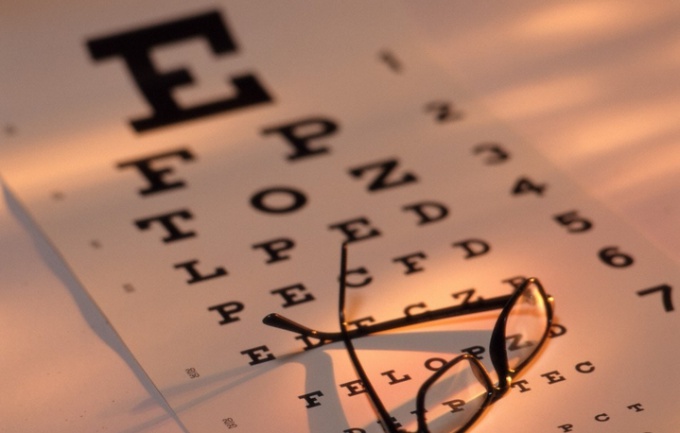Instruction
1
Contact your ophthalmologist in the clinic at the place of residence. After the examination, he will be able to reach a conclusion about how you put a disability or not. Under current law, a disability for vision can be installed in the case, if the sharpness is 0.1 and less. And accounted indicators the better eye. If the patient is blind in one eye, but in the second vision more than 0.1 - disability, most likely, will not.
2
In the case of a positive decision, the optometrist will give you direction on annual medical exams. Even if you don't have any complaints on the part of other professionals, you still have to go to inspection and get their opinion. In addition, you will be assigned to the blood and urine. If you have any health problems, doctors will recommend additional tests such as ultrasound, ECG or x-ray.
3
When they passed the examinations and obtained test results, you'll need to re-visit the optometrist. He'll take your medical records, examine expert opinions and preparing documents for medical and social expertise. Writing a detailed case history, the ophthalmologist will send you to the physician of the medical institution that he became acquainted with your medical history, confirmed the presence of indications for the registration of disability, and assured that the signed direction to the ITU.
4
Contact the Bureau of medical social expertise in the place of your residence. Don't forget to bring your passport, you will need it when writing statements on the passage of the Commission. After reviewing your medical records, doctors will prescribe a day in which you will need to appear for the examination. If you for a valid reason will not be able the appointed day come to the Bureau, ITU, call ahead and warn. You will be assigned another date.
5
On the day of passing the examination you will be examined by an ophthalmologist from the Bureau of the ITU, will ask several questions and after a while will report if you have qualified for disability, which group will be established and the degree of disability. You will be given a certificate confirming the status of a disability and the individual rehabilitation program.
Note
The first group of disability required to undergo re-examination once in two years. The second and third group each year. In case of violation of functions of organism irreversible disability given in perpetuity.
Useful advice
As a rule, when the vision 0.1 and 0.3 give the third group of disability. At 0.1-and 0.05 - second. If the vision worse and not amenable to spectacle correction is likely to be installed the first group of disability.





